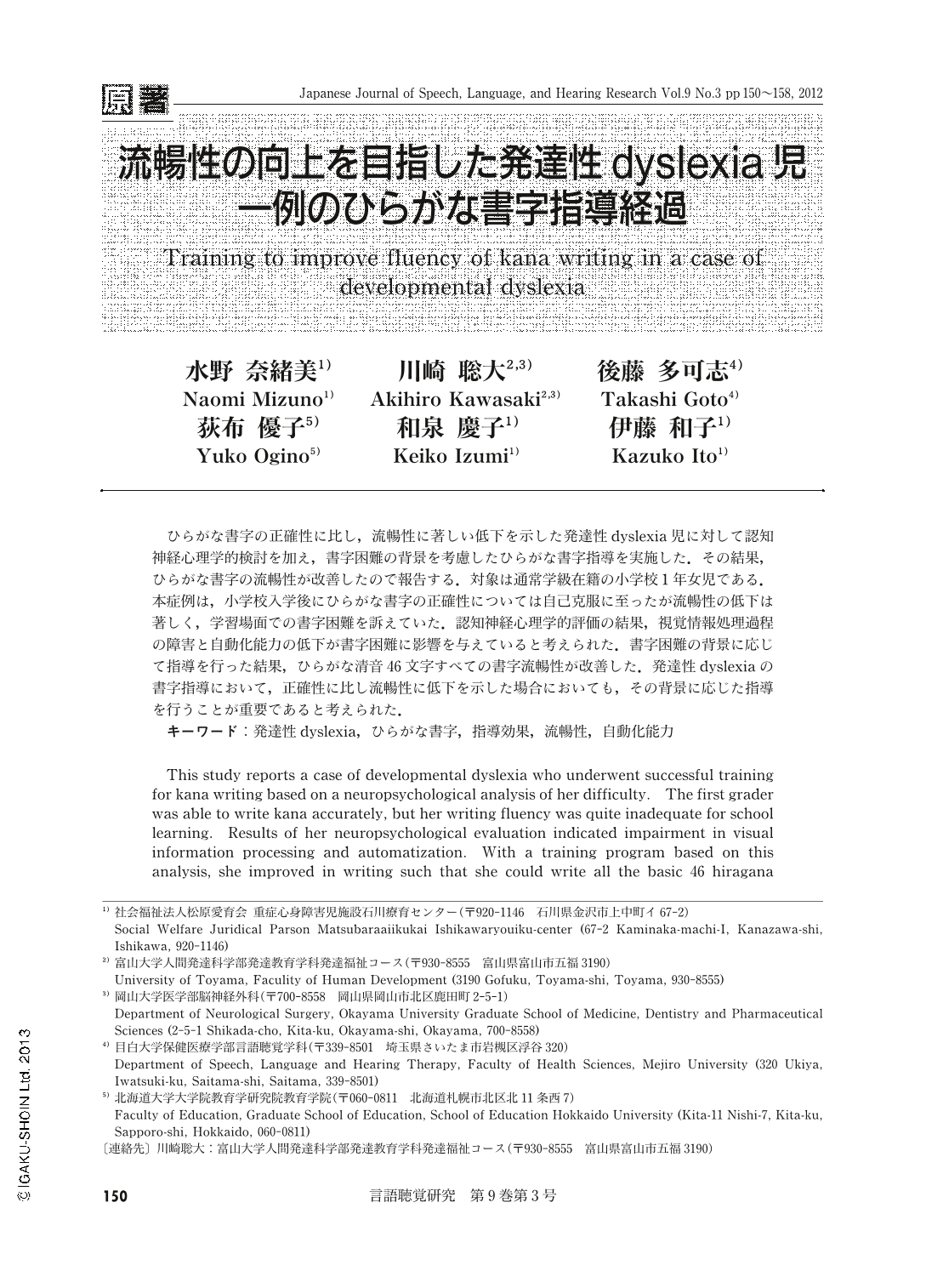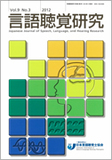Japanese
English
- 有料閲覧
- Abstract 文献概要
- 1ページ目 Look Inside
- 参考文献 Reference
- サイト内被引用 Cited by
ひらがな書字の正確性に比し,流暢性に著しい低下を示した発達性dyslexia児に対して認知神経心理学的検討を加え,書字困難の背景を考慮したひらがな書字指導を実施した.その結果,ひらがな書字の流暢性が改善したので報告する.対象は通常学級在籍の小学校1年女児である.本症例は,小学校入学後にひらがな書字の正確性については自己克服に至ったが流暢性の低下は著しく,学習場面での書字困難を訴えていた.認知神経心理学的評価の結果,視覚情報処理過程の障害と自動化能力の低下が書字困難に影響を与えていると考えられた.書字困難の背景に応じて指導を行った結果,ひらがな清音46文字すべての書字流暢性が改善した.発達性dyslexiaの書字指導において,正確性に比し流暢性に低下を示した場合においても,その背景に応じた指導を行うことが重要であると考えられた.
This study reports a case of developmental dyslexia who underwent successful training for kana writing based on a neuropsychological analysis of her difficulty. The first grader was able to write kana accurately, but her writing fluency was quite inadequate for school learning. Results of her neuropsychological evaluation indicated impairment in visual information processing and automatization. With a training program based on this analysis, she improved in writing such that she could write all the basic 46 hiragana characters fluently. It suggests that in writing training for individuals with developmental dyslexia, it is important to address underlying neuropsychological problems to improve fluency as well as accuracy.

Copyright © 2012, Japanese Association of Speech-Language-Hearing Therapists. All rights reserved.


